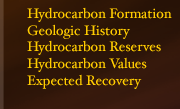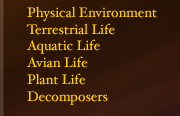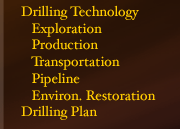
Societal Implications - Alaskan Citizens
Alaskans feel that they should have more of a say in what happens to their land than U.S. citizens who live in the states. According to Common Wealth North, a non-profit organization that discusses Alaskan state issues, oil drilling would be beneficial for Alaska for several reasons. First of all, there will be higher income for the state treasury, and this money will create more jobs, and more people will go to Alaska. The population influx will create more power for the state of Alaska because of increased representation in Congress due. It is projected by Common Wealth North that there will be economic benefits from construction activity as well as long term project benefits from construction activity and in-state ownerships of a project.
We must also consider what will happen when the oil runs out. There is a trust fund that is similar to Social Security called the Permanent Fund that holds all the revenue that Alaska makes through oil drilling, and a portion of this money is given to Alaskan citizens every year. As of June 2003, the Permanent Fund was valued at $24.2 billion. It was the voters' decision to create this fund and its purpose is to conserve the revenue from oil drilling to make oil drilling revenues last (Alaska Permanent Fund Corporation, www.aptc.org).
An article written by Don Shackelford in the Anchorage Press reflects upon the book Crude Dreams by Jack Roderick. Shackelford notes that, instead of America being dependent on foreign oil, Alaska's economy will be dependent on oil. Alaska could be analogous to third world countries whose economy is saved by oil which almost always leads to social disruption. He thinks that oil drilling is a love-hate relationship for all Alaskan citizens because of the inherent destruction and exploitation contrasted with the revenue received from oil drilling.
According to Tom Moran's article in the Fairbanks Daily News-Miner, "Increasing Revenue", some people argue that drilling ANWR will be the only way to pay for the deficit that Alaska has now. However, if there was drilling, it would not produce revenues until after all the reserve money is gone (estimated to be Jan 2007). However, according to Andrea Doll from JuneauEmpire, a barrel of oil would not be seen until 2010, and drilling is a risk because it is not known whether or not revenues from oil drilling will cover the debts that Alaska has.
According to Alaskan Ben Crosby, one of our mentors for Mission 2007, citizens are very active voters, especially concerning local government. For the most part, according to trends, most Alaskan citizens do not have a tendency to save any of Permanent Fund dividends. Permanent Fund Dividends are given out to all citizens of any age, including infants. In our interview, he gave a very relevant example; he introduced a similar situation to oil drilling where an Alaskan town was developed for non-renewable resources. The area was near Kotzebue, and the development was a zinc mine called Red Dog Mine. In this situation, there was a lot of "fast cash" to which citizens flocked. Jobs were created to maintain the services needed to keep up this project of taking zinc out of the mine. This is analogous to drilling in ANWR because oil is a nonrenewable resource and will create jobs for Alaskans as did Red Dog Mine. In the case of Red Dog Mine, fathers and mothers would go to this mine and work there for large amounts of cash that they were not used to. This created a multitude of problems including family breakdown due to parental absence. In addition, lack of income once the renewable resource was gone was a major issue. Due to the culture, most Alaskans do not have a tendency to save for the future, and, when the zinc from the mine was gone, so were the jobs and source of money for these families that were dependent on it.
Although it is true that drilling for oil in ANWR will create jobs and might help pay off the deficit of Alaska State, questions arise as to how fast this money will come in and how long the jobs will last. From past examples such as the Red Dog Mine, the results are not very favorable. Such projects have resulted in quick wealth, and, when the jobs were eliminated because there was no more zinc, the wealth was eliminated as well. Meanwhile, development weakened family units due to absence of parents who worked far from home.
There is a Permanent Fund, and this will help distribute and lengthen the wealth from oil. However, there have been votes as to whether or not Permanent Fund should just be given out in larger chunks, and the votes have come closely in favor. This suggests that the mentality of most Alaskan citizens is not to save.
From estimates, a barrel of oil would not be seen until ten years later if drilling began today. There will be increased power in Congress for Alaska due to increased representation; however, instead of the US being dependent on foreign oil as most proponents for drilling argue, the power of Alaska State will be dependent on something as unreliable as oil drilling.�





